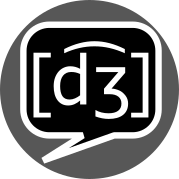What are the terms for language anachronisms?
I had a conversation about a year ago with someone about anachronisms in language. We both felt that there were terms for these things, but could neither recall nor find (via web search) satisfying answers. This came up again recently in a different discussion in a Lemmy community, and it’s driving me a little nuts. Help me Linguistics-Wan Kenobi; you’re my only hope.
So we have the term “skeumorphism,” which refers to oramental anachronism. I may be using “anachronism” incorrectly, but it’s the hammer I have. Skeumorphisms, in computers, refer to the graphical representations of things, but not the underlying concepts. There are similar linguistic anachronisms that I feel also have specific labels:
- “disks” which are still in use, but are largely being replaced by solid-state, rectangular SSDs; but most people still call all persistent storage devices “disks.”
- “film” to refer to movies, regardless of the media (increasingly digital and having nothing to do with film).
- “rice” to refer to the process of fancifying something, like computer desktops
- “desktops” to refer to computer GUI window managing interfaces
- “files” and “folders” in computers
Are these all the same category of things? Is there a term for them?
The process itself is known as semantic change, or semantic drift - you have a bunch of meanings that are associated with a morpheme, word or expression, and they changed over time. You can read further about it here.
In special, your examples seem to be, for me:
- ⟨disk⟩ - semantic widening from “storage device with a specific shape” to “any storage device regardless of shape”
- ⟨film⟩ - metonymy from “pellicle used to store visual data” to the visual data itself
- ⟨file⟩ and ⟨folder⟩ - metaphor, from physical paper sheets and the containers used to organise them to chunks of data and the virtual containers where it is organised.
- ⟨desktop⟩ - that was a big chain of semantic changes. From “place over the desk” to “object placed over the desk” (i.e. desktop computer) to “a feature of the software commonly used in those objects”.
I’m really unsure on ⟨rice⟩.
IIRC “rice” comes from people who would mod Japanese imported cars. It has since been adopted by other hobby communities that like to “trick out” their stuff for aesthetic reasons. Particularly IME the Unix UI modding community.
Thanks. I had to look at the full chain to know the changes that happened, it seems to be fairly complex:
- ⟨rice burner⟩ noun as “Japanese car”. Derogatory metaphor.
- → ⟨rice⟩ noun as “Japanese car”. Lexical change (clipping).
- → ⟨rice⟩ noun as “features associated with a Japanese car”. Semantic change (metonymy - the part by the whole).
- → ⟨rice⟩ verb as “to add to a car features associated with a Japanese car”. Derivation (verbification)
- → ⟨rice⟩ verb as “to add to a car features seen as fancy or unnecessary”. Semantic change (metonymy - referring to the parts by subjective attributes seen on them)
- → ⟨rice⟩ verb as “to add features seen as fancy or unnecessary”. Semantic change (widening - removing the restriction regarding cars)
I’m not too sure on the chain, but it should be something like this.
Semantic shift is the process, but there’s probably also a term for these words.
Like rolling down a car window or dialling phone number? Hanging up the phone too?
Exactly!
Then I believe it’s semantic change like the other person said.
I found this example pretty interesting:
Metaphor: When a word is used to describe something based on similarity. For example, broadcast originally meant “to cast seeds out”; with the advent of radio and television, the word was extended to indicate the transmission of audio and video signals.
Maybe the term you’re looking for is fossil word?
Edit: for the terms themselves – as mentioned by others, the process is semantic drift.




